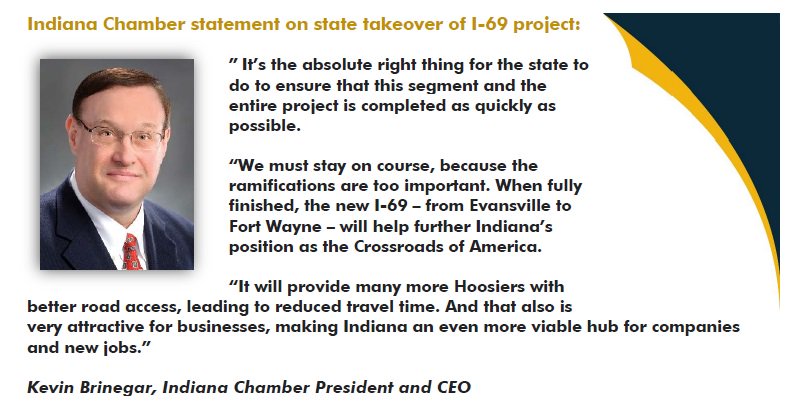.jpg) How to pay for current and future road repairs is a challenge for nearly all states. The federal Highway Trust Fund is not the answer, at least not in its current form. Governing magazine asked a Tax Foundation expert for his perspective on some alternatives. Governing reports:
How to pay for current and future road repairs is a challenge for nearly all states. The federal Highway Trust Fund is not the answer, at least not in its current form. Governing magazine asked a Tax Foundation expert for his perspective on some alternatives. Governing reports:
Commute to work is a bit on the bumpy side, then you know the answer is road repairs. The follow up question is: Given how long this downturn has afflicted state and local budgets, who’s going to pay to repair potholes and the like?
Well, it’s not going to be the feds. The Highway Trust Fund, which finances an average 45 percent of a state’s highway and transit capital costs, is shrinking. One reason for that shrinkage is that the federal gas tax has been stuck at its current rate (18.4 cents per gallon) since 1993, which means it is not keeping up with inflation, to say nothing of state needs. Congress is not likely to raise the federal gas tax rate this year or next, so that leaves the states. In theory, they have a little room to raise or tinker with their gas tax formula — something most states have not done in years.
Given the importance of a healthy road system to economic development, what approaches could states take to raise revenue for road repair and building? I put that question to Mark Robyn, an economist with the Tax Foundation. Here’s an edited version of our conversation:
Is this a good time for states to raise their motor fuel taxes?
It’s difficult to raise most taxes. The gas tax — an excise tax — is interesting because it’s one of the few that states levy that really looks like a user fee. You pay it when you use a specific service, and the rate is set at a level to pay for the service you consume. It’s like an entrance charge to a state park. You wouldn’t call that a tax as long as that revenue is used to pay for upkeep of the park and the charge reflects what the costs are.
The gas tax, though not perfect, is an approximation of that relationship. Revenue received from gas taxes usually is used for road and highway maintenance; the fee you pay approximates how much road you consume. But different cars get different gas mileages; electric cars don’t even use gas but they also don’t cause less damage to the road. So the gas tax is not perfect but it is similar to a user fee. If states want to structure the gas tax like a user fee and if the state is not getting the money it needs for roads and repair, the next logical step would be to increase the gas tax. But people have to believe the money is being spent wisely. Not all states do that, and people say, "Well, I see this waste of money. If you increase my taxes, you’ll waste a portion of it." When I say states are wasting money, I mean they are using it for road projects that people don’t see as valuable — the "bridge to nowhere." If there are no "bridges to nowhere" and people are driving over potholes, they’ll be more willing to accept gas taxes to avoid potholes.


 The U.S. Congress voted last week to provide $10.9 billion to the U.S. Department of Transportation to fund the Highway Trust Fund in order to reimburse states for repairs and infrastructure improvements for roads, rails and airports.
The U.S. Congress voted last week to provide $10.9 billion to the U.S. Department of Transportation to fund the Highway Trust Fund in order to reimburse states for repairs and infrastructure improvements for roads, rails and airports..jpg) How to pay for current and future road repairs is a challenge for nearly all states. The federal Highway Trust Fund is not the answer, at least not in its current form. Governing magazine asked a Tax Foundation expert for his perspective on some alternatives.
How to pay for current and future road repairs is a challenge for nearly all states. The federal Highway Trust Fund is not the answer, at least not in its current form. Governing magazine asked a Tax Foundation expert for his perspective on some alternatives.